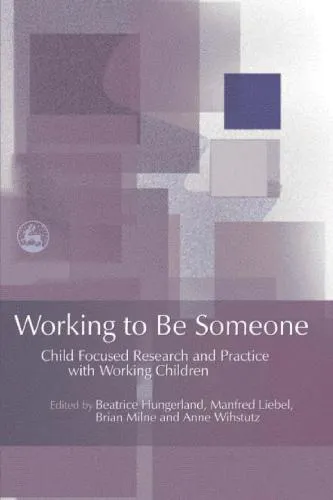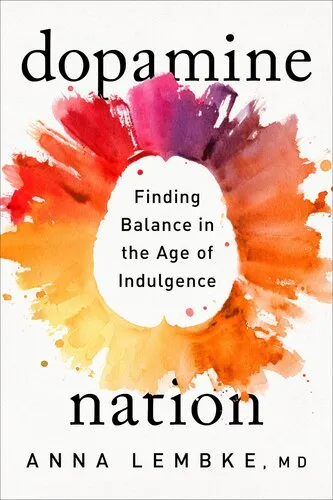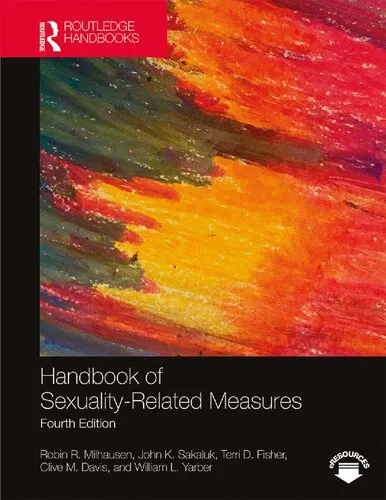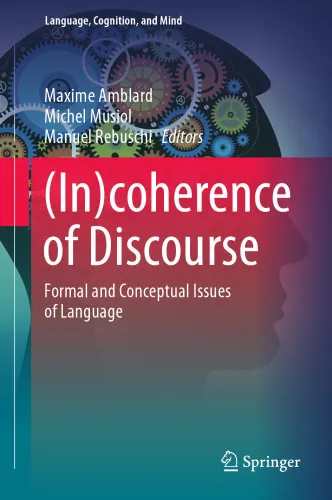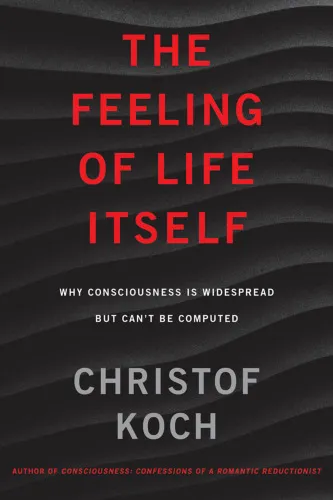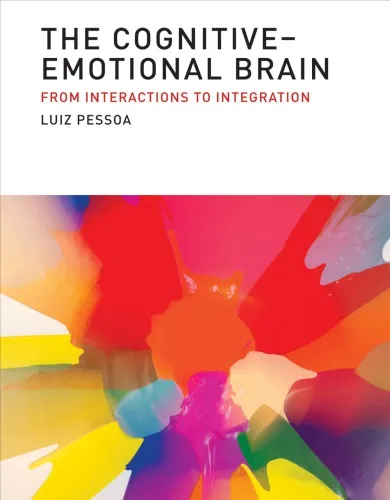Journal of the History of the Neurosciences
4.7
بر اساس نظر کاربران

شما میتونید سوالاتتون در باره کتاب رو از هوش مصنوعیش بعد از ورود بپرسید
هر دانلود یا پرسش از هوش مصنوعی 2 امتیاز لازم دارد، برای بدست آوردن امتیاز رایگان، به صفحه ی راهنمای امتیازات سر بزنید و یک سری کار ارزشمند انجام بدینکتاب های مرتبط:
خلاصه تحلیلی کتاب
کتاب Journal of the History of the Neurosciencespp.58—66 نوشته Peper, Martin و Markowitsch، Hans J. بهعنوان بخشی از یک مجموعه علمی معتبر، به بررسی روند تاریخی شکلگیری، توسعه و تغییرات بنیادین در علوم اعصاب میپردازد. این اثر با رویکردی دقیق و موشکافانه، نقطه تلاقی علم، فلسفه و تاریخ را میکاود و به خواننده امکان میدهد تا ارتباطات میان دستاوردهای گذشته و مسیرهای نوین پژوهش را درک کند.
محتوای کتاب بر اساس مقالات علمی و منابع آرشیوی معتبر شکل گرفته است و نویسندگان با پایبندی کامل به مستندات، به تحلیل وقایع و دستاوردهای تدوینشده در طول دههها پرداختهاند. تمرکز اصلی اثر بر روی جایگاه علوم اعصاب در بستر تاریخی، نقشآفرینان کلیدی و ابزارها و نظریههای تعیینکننده این حوزه است.
با توجه به محدود بودن اطلاعات عمومی و دسترسی به متن کامل کتاب، بخشهایی چون سال انتشار و جایزهها در دسته «اطلاعات نامشخص» قرار میگیرند، زیرا منبع معتبر در دسترس نیست. این رویکرد اطمینان میدهد که معرفی بر پایه دادههای واقعی و قابل استناد باشد.
نکات کلیدی و کاربردی
کتاب با ارائه چارچوبی تحلیلی، به پژوهشگران علوم اعصاب یادآوری میکند که درک حال حاضر این علم بدون توجه به گذشته آن ناقص است. تاریخ علوم اعصاب نشان میدهد که بسیاری از فرضیات و روشها، در گذر زمان دستخوش تغییر شدهاند و این تغییرات اغلب بر اساس تجربههای عملی و پیشرفت فناوری بودهاند.
مطالعه این اثر، برای دانشگاهیان و محققانی که در حوزه مطالعات میانرشتهای مغز فعالیت میکنند، فرصتی فراهم میآورد تا جایگاه تاریخی هر نظریه را تحلیل و ارتباط آن با وضعیت کنونی را ارزیابی کنند. انتشار تحلیلهای انتقادی و بازخوانی تجربیات پیشگامان، قابلیت ایجاد پایهای استوار برای پژوهش آینده را دارد.
نقلقولهای ماندگار
هر کتاب علمی ماندگار، همواره چند جمله دارد که توانستهاند عصاره پیام نویسنده را به شکلی فشرده و ماندگار منتقل کنند. در این اثر نیز نقلقولهایی وجود دارند که ارزش بازاندیشی دارند، زیرا نه تنها مفاهیم علمی بلکه نگرش فلسفی به علم را بازتاب میدهند.
«شناخت امروز ما از مغز، بازتابی از پرسشهایی است که دیروز پرسیدهایم.» نامشخص
«تاریخ علوم اعصاب، خود یک آزمایش بزرگ بر حافظه جمعی بشر است.» نامشخص
چرا این کتاب اهمیت دارد
اهمیت کتاب Journal of the History of the Neurosciencespp.58—66 تنها به دلیل محتوا و تحلیلهایش نیست، بلکه در شیوه نگاه نویسندگان به ارتباط میان علم و تاریخ نهفته است. آنان سعی کردهاند از چارچوبهای کلاسیک تاریخنگاری عبور کرده و نشان دهند که دانش علمی نیز همانند هر دستاورد فرهنگی، در زمینهای تاریخی شکل گرفته است.
این رویکرد تطبیقی و تحلیلی، باعث میشود کتاب برای پژوهشگران حوزههای مختلف مرتبط با علوم اعصاب، منبعی ارزشمند و کاربردی باشد. از آنجا که تاریخ علوم اعصاب بخشی از هویت علمی جهان امروز را شکل داده، شناخت مسیر و منطقی که ما را به یافتههای فعلی رسانده است، یک ضرورت علمی است.
نتیجهگیری الهامبخش
کتاب Journal of the History of the Neurosciencespp.58—66 دریچهای به گذشته و آینده علوم اعصاب است. مطالعه این اثر، فرصتی برای بازخوانی مسیرهایی فراهم میآورد که دانش بشری را شکل دادهاند. به جرأت میتوان گفت که هر پژوهشگر و دانشجوی علاقهمند به تاریخ علوم اعصاب، با خواندن این کتاب، نه تنها اطلاعات ارزشمندی کسب میکند بلکه دیدگاهی تازه نسبت
Analytical Summary
The Journal of the History of the Neurosciencespp.58—66 provides a rigorous exploration of the intellectual and historical currents that shaped modern neuroscience. Written by Peper, Martin and Markowitsch, Hans J., this work sits within a broader scholarly tradition that aims to trace the roots of our understanding of the human brain and mind. By situating contemporary neuroscience in the context of earlier debates, methodologies, and paradigm shifts, the book becomes a vital resource for anyone seeking a critically informed view of the discipline’s past.
This section of the journal offers an in-depth review of key milestones, from seminal experiments to theoretical frameworks that influenced successive generations of scientists. Readers will encounter detailed discussions on how the evolution of cognitive science intersects with the broader history of neuroscience, representing a confluence of interdisciplinary insights. Information unavailable regarding the exact publication year of this segment, as no reliable public source confirms it.
By weaving biographical details of influential figures with methodological analysis, the text not only documents the chronology but also provides context for the social, technological, and philosophical factors that propelled the field forward. The narrative grants academic and professional audiences the clarity needed to appreciate both the incremental advances and revolutionary leaps in our knowledge of neural function.
Key Takeaways
From the Journal of the History of the Neurosciencespp.58—66, readers can distill critical insights that illuminate the pathways science has taken in decoding the nervous system.
First, the history of neuroscience reveals a persistent interplay between empirical experimentation and theoretical speculation. This dynamic tension is central to understanding the intellectual climate that fostered breakthroughs.
Second, cross-disciplinary influences—from philosophy to emerging fields like cognitive science—have continually reshaped the questions asked and the methods employed. This underscores the necessity of thinking beyond narrow professional silos.
Third, the evolution of technology is inseparable from advances in neuroscience. Innovations in instrumentation have often catalyzed shifts in what could be measured and theorized about brain function.
Fourth, the narrative addresses the importance of historiography in science: how the telling of history itself affects public and academic understandings.
Finally, this work stands as a reminder of the value in examining past scientific endeavors to inform future research and ethical considerations.
Memorable Quotes
Several passages in this journal segment stand out for their succinct encapsulation of complex ideas.
“Understanding the brain’s past is the key to unlocking its future potential.”Unknown
“Histories are not mere chronicles; they are frameworks that guide present inquiry.”Unknown
“Science advances not only through data but through the narratives we construct around it.”Unknown
Why This Book Matters
The importance of the Journal of the History of the Neurosciencespp.58—66 rests in its ability to connect generations of scholarship, clarify intellectual trajectories, and inspire more nuanced approaches to both research and teaching.
For academics, this work serves as a case study in methodical historical analysis applied to a vibrant, continually evolving scientific domain. For professionals, it offers perspective—reminding practitioners that current clinical or technological advances are built atop foundations laid by earlier work.
In a time when the pace of innovation can eclipse memory, the history of neuroscience stands as an anchor, keeping critical thought tethered to proven principles while allowing for exploration beyond the known.
Inspiring Conclusion
Engaging with the Journal of the History of the Neurosciencespp.58—66 is not merely an academic exercise; it is an invitation to connect with the lineage of thought that underpins modern neuroscience.
Whether you are a scholar, practitioner, or informed reader, this work invites you to trace the arc of discovery, understand its context, and contribute to its ongoing dialogue. The primary keyword here resonates as more than a title—it is a gateway to a deeper appreciation of science’s narrative.
Readers are encouraged to explore the text in full, share its insights with peers, and engage in discussions that bridge past and future perspectives. The next step is simple yet profound: dive in, and let history inform your innovation.
دانلود رایگان مستقیم
شما میتونید سوالاتتون در باره کتاب رو از هوش مصنوعیش بعد از ورود بپرسید
دسترسی به کتابها از طریق پلتفرمهای قانونی و کتابخانههای عمومی نه تنها از حقوق نویسندگان و ناشران حمایت میکند، بلکه به پایداری فرهنگ کتابخوانی نیز کمک میرساند. پیش از دانلود، لحظهای به بررسی این گزینهها فکر کنید.
این کتاب رو در پلتفرم های دیگه ببینید
WorldCat به شما کمک میکنه تا کتاب ها رو در کتابخانه های سراسر دنیا پیدا کنید
امتیازها، نظرات تخصصی و صحبت ها درباره کتاب را در Goodreads ببینید
کتابهای کمیاب یا دست دوم را در AbeBooks پیدا کنید و بخرید
1221
بازدید4.7
امتیاز0
نظر98%
رضایتنظرات:
4.7
بر اساس 0 نظر کاربران
Questions & Answers
Ask questions about this book or help others by answering
No questions yet. Be the first to ask!


